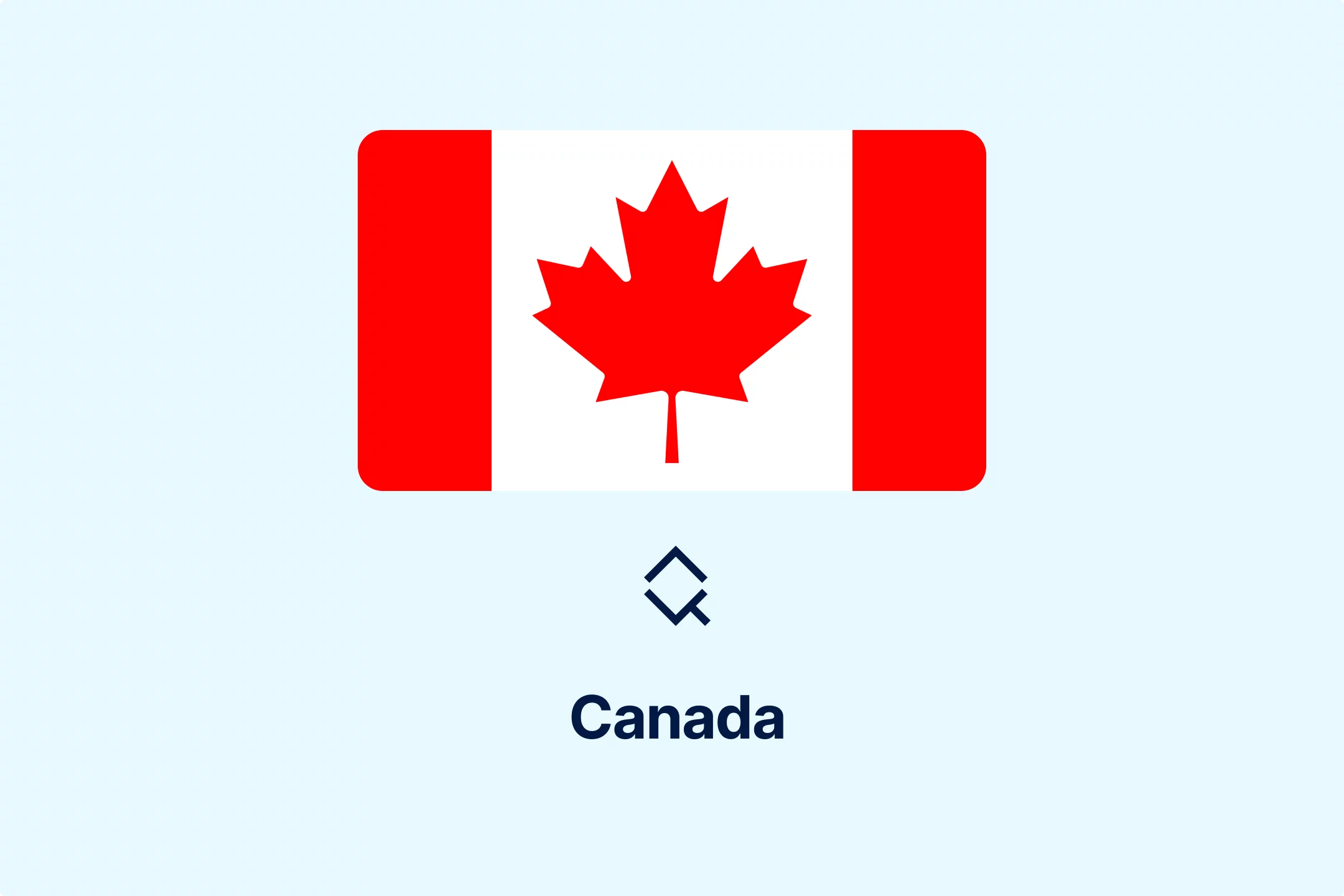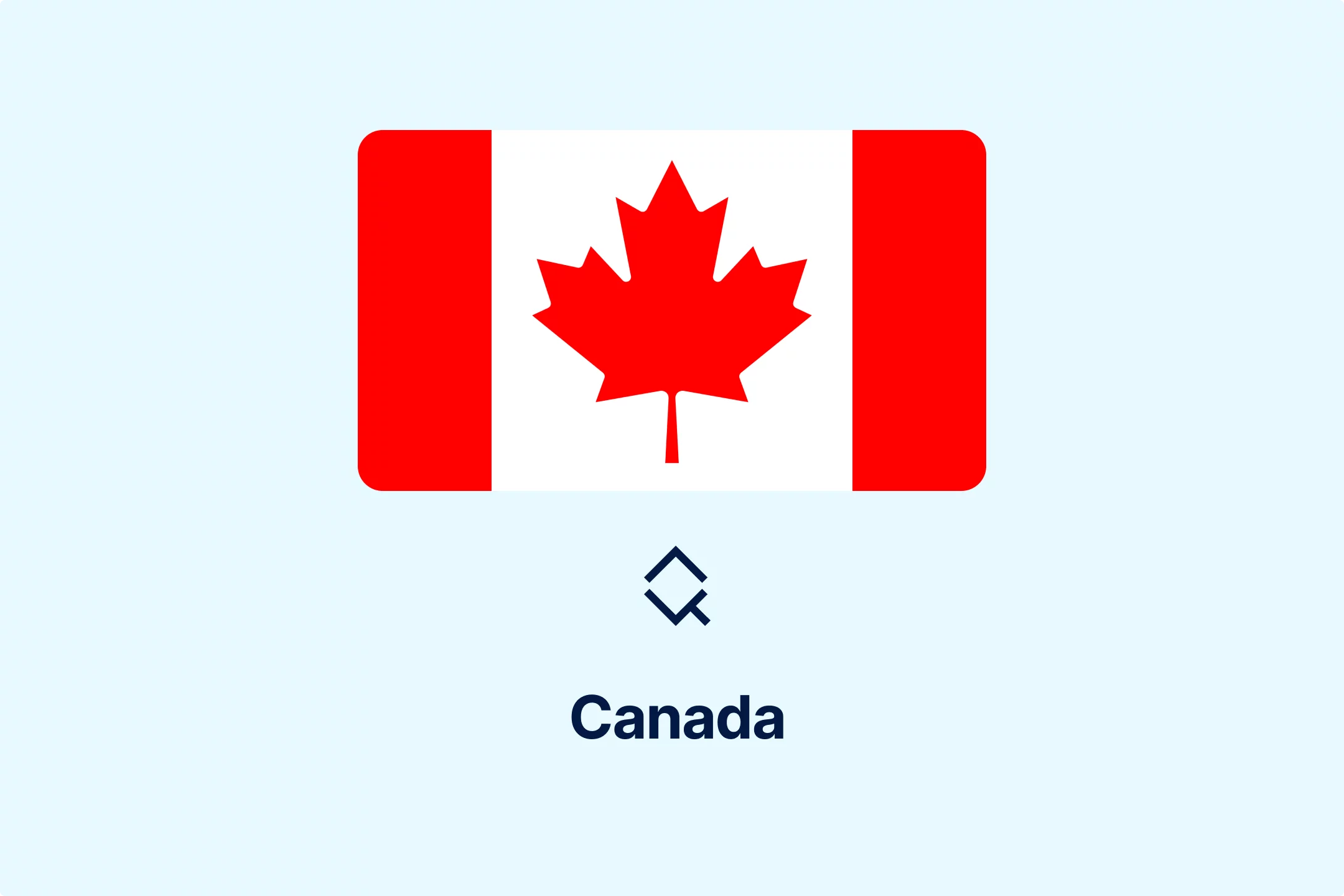Canada's Digital Services Tax Act Explained: Scope, Impact & Compliance

The changes and novelties brought by the digital economy have put governments across the globe in a position where they need to reevaluate their tax regulatory frameworks and keep up with modern trends and business models. One of the world's biggest economies, Canada was not immune to these challenges.
Therefore, Canada introduced the Digital Services Tax Act (DST) to cope with tax challenges posed by tech giants operating in Canada without a physical presence and providing services to Canadian customers. This article delves into the Canadian DST and explores its scope, requirements, and impact on businesses and users.
Overview of the Canadian Digital Services Tax Act
Canada announced its plan to introduce the DST back in 2020. However, it officially came into effect in June 2024, retroactively applying to the so-called in-scope revenues from January 1, 2022. Domestic and foreign digital service providers fall under the DST's scope if they meet specific criteria.
Therefore, any digital service provider whose annual global revenue in the year before the reporting one is above CAD 750 million and whose Canadian in-scope revenue is above CAD 20 million must pay a 3% tax on its revenue earned from Canadian users.
Digital service providers that do not exceed the global and Canadian threshold for DST but have Canadian digital services revenue above CAD 10 million must register for DST and file annual DST returns. However, they will not pay a 3% tax.
The DST applies on a calendar-year basis, and the first calendar year it applies is 2024. The first payment of DST will be due on June 30, 2025, and will include the DST in-scope revenues earned from 2022. This decision to retroactively apply the DST has been met with opposition not only from large companies that are subject to the tax but also from governments, the most vocal of which is the US government.
Canadian DSA Scope
The DST applies to the four categories of in-scope revenue: online marketplace services revenue, advertising services revenue, social media services revenue, and user data revenue.
Online Marketplace Services Revenue
To fall under the DST's scope, online marketplaces must meet three requirements. They must be digital interfaces that allow users to interact with other users and facilitate the supply of goods or services, including digital content.
For example, this means that Amazon falls under the DST. In contrast, a digital interface with a single supplier, or one that offers payment services, is excluded from being an online marketplace and is outside the scope of the DST.
Canadian online marketplace services revenue includes revenue generated from subscription fees and pay-per-user fees collected for providing access to online marketplaces. Furthermore, the revenue generated based on facilitating the supply between users, such as transaction fees, also falls under the online marketplace services revenue.
Online Advertising Services Revenue
Revenue earned from targeted advertising through an online digital interface and by providing an online space for targeted advertising is considered online advertising services revenue under the DST regulations. Sponsored content, displaying advertisements, video advertising, and political campaign advertising, if used for promotional purposes, are considered targeted advertising.
The targeting advertising can be demographic based on user data, including age or gender, geographical if based on the user's location, and behavioral and interest-based targeting based on the user's browser, purchase, or search history. In addition, if advertising is based on user data that includes the history of the user's access, then it is considered time targeting, and revenue earned from providing those services falls under the scope of DST.
Social Media Services Revenue
Under the DST, social media services revenue includes revenue earned from providing users access to the social media platform and premium services and facilitating the interaction between users or between users and digital content created by other social media users.
User Data Revenue
User names, mailing or email addresses, preferences, or other similar data that online marketplaces, search engines, or social platforms collect from their users and sell or earn is subject to DST as user data revenue. In addition to selling user data, revenue generated from licensing it to third parties is also subject to DST revenue rules.
Impact on Digital Service Providers and Users
With the DST rules in place, digital service providers must register for DST in Canada if their global and Canadian in-scope revenues exceed the defined thresholds. In addition, those subject to a 3% tax will face financial burdens that could decrease profits.
Also, those who meet all the criteria for registering and paying DST must allocate additional resources to determine if revenues generated in 2022 and 2023 fall under Canadian in-scope revenues and if global revenues from 2021 and 2022 are above the worldwide revenue threshold. Furthermore, digital service providers must calculate what amount of DST they pay in the upcoming year for revenues earned in 2022, 2023, and 2024.
On the other hand, users who use services provided by these companies may face increased prices or additional fees. The digital service providers may decide to transfer these costs to their users. For example, Amazon imposed a new 3% fee on its Amazon Sellers in Canada, while Google introduced a 2.5% Canada DST Fee for ads served in Canada.
Penalties For Non-Compliance With DST Rules
All companies that do not register for DST on time, meaning January 31 of the following year, may face a penalty of CAD 20,000 for each calendar year in which they had to register. Failure to file a timely DST return may lead to penalties of up to 5% of the due DST and 1% of the due DST multiplied by the number of months that the return was late. However, the 1% penalty is limited to 12 months.
Those who repeatedly fail to file DST returns could face even higher penalties of up to 10% due DST and 2% due DST multiplied by the number of complete months that the return is late.
Submitting false and incorrect DST returns could result in CAD 5,000 or 25% of the amount by which any amount payable under this DST regulation was reduced or by which any payment that may be obtained under it was increased, whichever is higher.
Finally, failing to provide the required information or record will be penalized with CAD 2,500 for each such failure.
Conclusion
In addition to direct financial costs caused by paying the DST for up to three years at once, determining what earnings from previous years fall under the DST scope and what amount of DST should be paid on these revenues is time-consuming for digital service providers. Moreover, the users of these services may also deal with the financial consequences of the DST being imposed on digital service providers, as they might be transferred to them through additional fees.
Nevertheless, with the end of calendar 2024 and the obligation to submit DST returns approaching, all companies whose revenues are above the DST thresholds must ensure that they register for DST in time and submit a timely and correct return.
Government of Canada - Digital Services Tax, Justice Laws Website - Digital Services Tax Act, Government of Canada - Explanatory Notes for the Digital Services Tax Act and Related Regulations, VATabout - Canada - Digital Services Tax Act Now In Effect, Amazon Seller Central, Google - Canada DST Fees

Featured Insights

Burkina Faso FEC E-Invoicing Mandatory July 2026
🕝 February 24, 2026More News from Canada
Get real-time updates and developments from around the world, keeping you informed and prepared.
-e9lcpxl5nq.webp)






-xsarn0aogt.webp)









